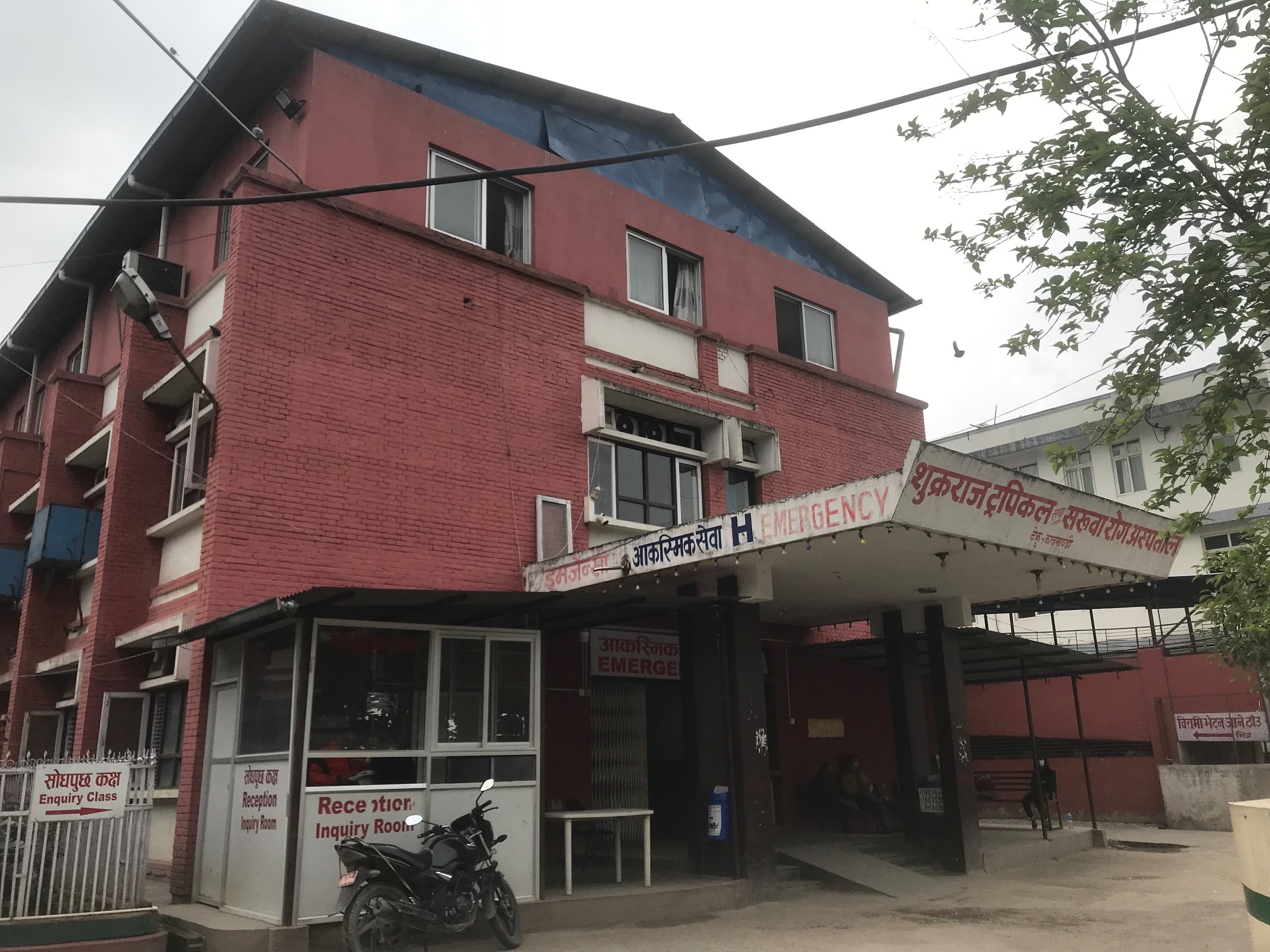Life & Health
A new spacious six-storey building. People getting pathological services from advanced and better equipped labs; medical services from minor OTs; highly skilled health practitioners; clean and easy access to out-patient services.
This is a proposed layout for Sukraraj Tropical and Infectious Disease Hospital – the country's only health centre specialised for the treatment of infectious diseases. Nawaraj Gautam, the Hospital's information officer, says that the complex will be finished in 2026. "Construction will start in three months."
Gautam said: “The hospital is being upgraded to a 300-bed medical centre. The bidding process for the construction of the new building has already started.”
Only infectious disease hospital

Popularly known as Teku Aspatal, the Sukraraj Tropical and Infectious Disease Hospital was established in 1933. The 100-bed facility serves as the national referral centre for infectious diseases.
The hospital has been providing care for patients suffering from tropical and infectious diseases. Since the proliferation of the coronavirus across the country, its services have grown increasingly in demand. The first case of the infection was detected in the hospital in March 2020.
The current facility will be demolished but hospital will continue services from temporary buildings. The hospital has been providing intensive care services from its 24 beds. Only four such beds will be operational during the construction period.
Plans for the new structure are now complete. The structure will be 11,416 square metres in size, with a basement measuring 3,520,28 square metres providing parking space for 50 cars and more than 200 two wheelers.
The ground floor will have 3221.08 square metres where the hospital will run its emergency services, out-patient department and radio imaging services.
The first floor will have a laboratory, out-patient department and fever ward. The second floor will house a specialised laboratory, general ward and emerging isolation wards. It will cover an area of 3221.08 square metres.
The third floor will have nutrition, transplantation, haematology, and malignancy wards. The floor will have 30 beds to treat transplant, haematology and malignancy associated infection. The fourth floor will have tuberculosis, rabies, tetanus, dermatology. This floor will also accommodate offices of the department heads.
Intensive care units, operation theatres and a seminar hall will be on the fifth floor. There will be a 30-bed ICU in the hospital. The sixth floor will be used for laundry and utility services.
Why reconstruction?
The earthquake in 2015 caused some damage to the facility. The hospital has continued to provide its services, despite the obvious fissures in its structures, as shown by the red sticker.
The earthquake had caused damage to the building, warranting rebuilding. Also, the country thought it needed a separate, modern hospital for the treatment of infectious diseases to deliver health care during pandemics and epidemics. The government decided to build a 300-bed communicable disease hospital in the Capital and a 50-bed communicable disease hospital in each of the provincial headquarters during the presention of the budget for the fiscal year 2020/21.
Former hospital director and infectious and tropical disease expert Dr Anup Bastola said, "The country is in need of a modern hospital for the treatment of infectious disease. The coronavirus taught us that our infrastructure and human resources aren't enough to provide services during pandemics.We don't have a hospital where people with cancer, blood diseases, or organ transplants can receive care for infectious diseases. This is why we have always pushed for an upgradation of the Teku hospital, its infrastructure, and human resources."
A federal government has provisioned a budget of Rs3.86 billion for the construction of the building equipped with oxygen pipelines, operation theatre, and hospital beds.
Services will be limited
The current hospital building needs to be torn down for the new building to be built on the same site. Some parts of the hospital will be torn down now. Gautam said, "The building where HIV/AIDS patients get antiretroviral treatment and the staff quarters will be torn down first."
However, the demolition works will begin only after the temporary buildings are finished.The building which hosts the laboratory and OPD section will not be demolished either.
Gautam said: “We can deliver services from 30 beds until we complete the building.”
Dr Bastola said: “When there is construction of hospitals for infectious diseases in the provinces, Sukraraj hospital will be a referral centre. The upgradation of the hospital will help in research and development of infectious diseases in Nepal.”
Planned services:
- super specialised services and intensive care units
- modern and special laboratories, isolated beds for infectious diseases
- dermatology, transplantation and hematology services
- antiretroviral therapy and fever clinic
- anti rabies clinic, physiotherapy
- minor OT, vaccination clinic etc.

_11zon1681280198.jpg)




